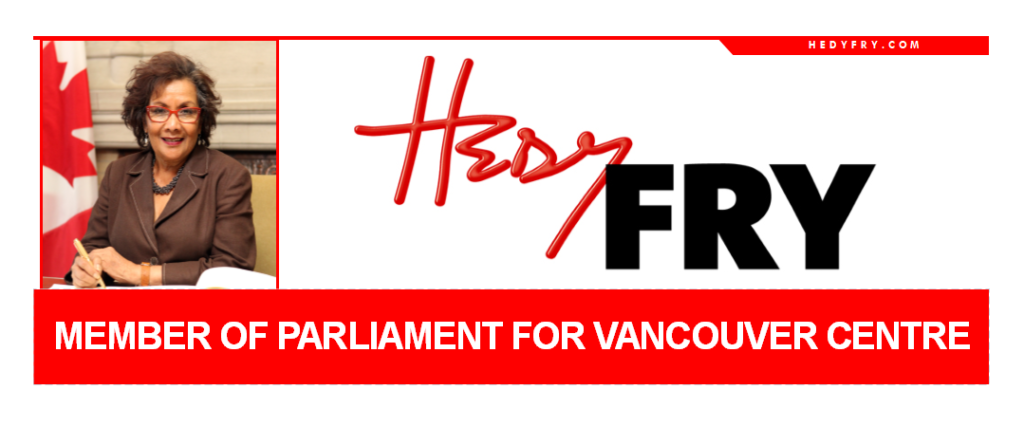
Updated October 20th, 2020
Canada United Small Business Relief Fund
- As we enter the second wave of COVID-19, small businesses continue to need our support.
- During Small Business Week, our government announced $12 million investment for the Canada United Small Business Relief Fund, which will provide grants of up to $5,000 to thousands of small businesses across the country to help them on the road to recovery.
- Canada United is a national fundraising campaign created by the Royal Bank of Canada in collaboration with private sector partners, and the network of Canadian chambers of commerce.
- These grants will help small business owners cover the costs of personal protective equipment, physical modifications to their businesses to meet local health and safety requirements, and enhancing their digital or e-commerce capabilities.
- Starting on October 26th, 2020, businesses can apply through the online portal on the Ontario Chamber of Commerce website for this new funding.
- This investment is about one Team Canada working together to help small businesses – and is yet another lifeline for resilient small businesses across Canada, and it builds on a wide variety of programs to help entrepreneurs keep their employees on the payroll, keep up with their operating expenses such as rent, and bridge to better times.
Black Entrepreneurship Program Backgrounder:
Overview:
The Black Entrepreneurship Program (BEP) is a near $221 million investment over four years that will address the systemic barriers that Black business owners and entrepreneurs face – providing targeted support amid COVID-19 and on the road to recovery.
BEP is comprised of three (3) elements: A National Ecosystem Fund for organizations that support Black entrepreneurs, a loan fund to provide financing for Black entrepreneurs and business owners, and a knowledge hub that will help fill gaps in data and knowledge about Black entrepreneurship.
The BEP will also help lay a stronger foundation that will enable them to grow and thrive in the months and years to come.
Please see: Prime Minister Trudeaus’ press release
Key Points:
Canada’s first-ever Black Entrepreneurship Program is an investment of up to nearly $221 million, including up to $93 million from our government and up to $128 million committed in lending capital from financial institutions.
There are 3 main components to the Program:
- a new National Ecosystem Fund to support Black-led business organizations across the country in their capacity to provide funding and capital, mentorship, financial planning services, and business training for Black entrepreneurs.
- a new Black Entrepreneurship Loan Fund that will provide loans for Black entrepreneurs via Black-led business organizations, which includes commitments from partnering financial institutions to make up to $128 million available in lending capital.
- a new Black Entrepreneurship Knowledge Hub that will collect data on the state of Black entrepreneurship in Canada to better inform policy-making
National Ecosystem Fund:
- up to $53 million to develop and implement a new National Ecosystem Fund to support Black-led business organizations across the country. It will help Black business owners and entrepreneurs access funding and capital, mentorship, financial planning services, and business training.
- Our government will launch a call for proposals for Black-led organizations to join and help deliver the National Ecosystem Fund for Black entrepreneurs. More details, including eligibility criteria and how to apply, will follow.
- Canada’s Regional Development Agencies will deliver the National Ecosystem Fund, and work with selected partner organizations to assist them in implementing their services.
- Our government will work to strengthen this ecosystem on a national scale to help Black entrepreneurs in every corner of the country.
Black Entrepreneurship Loan Fund
- up to $33.3 million in support through the new Black Entrepreneurship Loan Fund that will provide loans of between $25,000 and $250,000 for Black business owners and entrepreneurs. Our government is also partnering with financial institutions, including
RBC, BMO Financial Group, Scotiabank, CIBC, National Bank, TD Bank, Vancity, and Alterna Savings, to make up to an additional $128 million available in lending support.- The Black Entrepreneurship Loan Fund will be available through Black-led business organizations supported through the National Ecosystem Fund.
- Further details on eligibility requirements and how to apply for loans will follow from our government. The initial commitments made by financial institutions are subject to final development of the Loan Fund
Black Entrepreneurship Knowledge Hub
- up to $6.5 million to create and sustain a new Black Entrepreneurship Knowledge Hub that will collect data on the state of Black entrepreneurship in Canada and help identify Black entrepreneurs’ barriers to success as well as opportunities for growth.
- This is important not only to enable the creation of policy that reflects the needs of Black Canadians, but also to ensure that there is proper accountability to Black Canadian communities.
- The Hub will be run by Black-led community and business organizations, in partnership with educational institutions.
- As part of our work to better understand the barriers faced by and needs of Black entrepreneurs in Canada, Statistics Canada will work to improve disaggregated data collection on Black entrepreneurship.
- In addition to increasing funding available to Black entrepreneurs through the centralized Black Entrepreneurship Loan Fund, the BEP will also help Black business owners and entrepreneurs by strengthening business and mentorship supports in their communities through Black-led business organisations (National Ecosystem Fund), and by better capturing the experiences and challenges of doing business as a Black Canadian through the new Black Entrepreneurship Knowledge Hub.
Eligibility:
- The Black Entrepreneurship Program is designed to broadly serve Black business owners and entrepreneurs across Canada, through lending support, business plan development, mentorship, or otherwise.
- Details on specific eligibility criteria will be available soon.
How to Apply:
- Entrepreneurs will be able to access ecosystem supports through the BEP partner organization serving their region.
- Black-led organizations in the communities are best equipped to tailor supports to their areas, which is why the Black Entrepreneurship Program equips these business organizations to expand their offerings and meet the demands of their communities.
- Partner institutions in each region will be chosen through a Request for Proposal process. More details will follow.
- Our government will launch a website on the Black Entrepreneurship Program via Innovation Science and Economic Development.
Talking Points:
- Many Black entrepreneurs and business owners continue to face systemic barriers to equal economic participation and success and have been disproportionately affected by the COVID-19 pandemic.
- Together, along with Black-led business organizations, Black Entrepreneurship Program will provide targeted support for thousands of Black business owners and entrepreneurs across the country – helping them recover from COVID-19 and thrive for years to come.
- Right from the very beginning of this pandemic, we told Canadians that we are here to listen to them, and that we will create supports that respond to what they need.
- Black business owners have been clear that their unique barriers existed before COVID-19, and that targeted support was needed.
- We recognize the invaluable contributions of Black-owned businesses to our communities across the country.
- Black-owned businesses across Canada are led by talented, innovative, and resilient people.
- These businesses make our communities more vibrant, welcoming, beautiful places to call home.
- Their success is essential to Canada’s economy – both as we recover from the COVID-19 pandemic and into the future.
- But we know that for many Black business owners and entrepreneurs, the COVID-19 pandemic has highlighted and worsened existing inequalities they face on a daily basis.
- A longstanding history of anti-Black racism, discrimination, and prejudice has resulted in many Black business communities being disconnected from main stream supports.
- Instead, this business community relies on either informal or community-provided systems of support that can be trusted, like family members, friends, and other Black business owners.
- This means that many Black business owners and entrepreneurs have found it very difficult to access aid during COVID-19, including the Canada Emergency Business Account (CEBA), one of our government’s key measures to help businesses amid this pandemic
Additional Federal Programs Assisting Businesses
- The Canada Emergency Business Account (CEBA) provides businesses and not-for-profits with a $40,000 interest-free, partially forgivable loan through participating Canadian financial institutions. On August 31, the government extended the application period for the program to October 31, 2020, and indicated it was working closely with financial institutions to make CEBA available to those with qualifying payroll or non-deferral expenses that have so far been unable to apply due to not operating from a business banking account.
- Repaying the balance of the loan on or before December 31, 2022 will result in loan forgiveness of 25 percent (up to $10,000).
- Eligibility:
- The Borrower is a Canadian operating business in operation as of March 1, 2020.
- The Borrower has a federal tax registration.
- The Borrower’s total employment income paid in the 2019 calendar year was between Cdn.$20,000 and Cdn.$1,500,000. For applicants with Cdn.$20,000 or less in total employment income paid in the 2019 calendar year:
- The Borrower has a Canada Revenue Agency business number and has filed a 2018 or 2019 tax return.
- The Borrower has eligible non-deferrable expenses between Cdn.$40,000 and Cdn.$1,500,000. Eligible nondeferrable expenses could include costs such as rent, property taxes, utilities, and insurance. Expenses will be subject to verification and audit by the Government of Canada.
- The Borrower has an active business chequing/operating account with the Lender, which is its primary financial institution. This account was opened on or prior to March 1, 2020 and was not in arrears on existing borrowing facilities, if applicable, with the Lender by 90 days or more as at March 1, 2020.
- The Borrower has not previously used the Program and will not apply for support under the Program at any other financial institution.
- The Borrower acknowledges its intention to continue to operate its business or to resume operations.
- The Borrower agrees to participate in post-funding surveys conducted by the Government of Canada or any of its agents.
- https://ceba-cuec.ca/
- The Canada Emergency Wage Subsidy (CEWS) helps businesses by
covering a percentage of payroll, retroactive to March 15, with the intention to continue support into December.- Please note, whilst CEWS has reduced the amount of wage coverage (thus reducing the total funding provided), the new CEWS has removed the minimum revenue drop. Businesses do not need a minimum revenue drop to qualify for this subsidy.
- https://www.canada.ca/en/revenueagency/services/subsidy/emergency-wage-subsidy.html
- The Canada Emergency Commercial Rent Assistance (CECRA) for small
businesses is helping businesses that were forced to close – through support to landlords – by covering 75 per cent of their April, May, June, July, and August commercial rent. On September 8, 2020, the government extended the assistance with additional support for September for those who previously qualified through the CECRA. - The Canada Recovery Benefit (CRB) will provide eligible workers with $500 per week (taxable, tax deducted at source) for up to 26 weeks for those who have stopped working and who are not eligible for EI, or had their employment/self-employment income reduced by at least 50% due to COVID-19. This benefit will be paid in two-week periods.
- The Canada Women Entrepreneurship Fund is a $20 million fund supporting over 200 projects. The Women Entrepreneurship Fund helps women-owned and women-led businesses invest in activities that focus on:
- Supporting pursuit of market opportunities abroad
- Supporting Scale-up, Expansion and Growth
- Additional activates that support the objectives of the Women Entrepreneurship Fund
- https://www.ic.gc.ca/eic/site/128.nsf/eng/00003.html
- Canada Summer Jobs: Canada Summer Jobs is an initiative of the Youth Employment and Skills Strategy, which aims to provide flexible and holistic services to support all young Canadians develop the skills and gain paid work experience to successfully transition in the labour market.
- Canada Emergency Business Account (CEBA):
- CEBA is intended to support businesses by providing financing for their expenses that cannot be avoided or deferred as they take steps to safely navigate a period of shutdown, thereby helping to position businesses for successful relaunch when the economy opens. This $55 billion program provides interest-free loans of up to $40,000 to small business and not-for-profits. Repaying the balance of the loan on or
before December 31, 2022 will result in loan forgiveness of 25 percent (up to $10,000). - As of June 26, 2020, businesses eligible for CEBA now include owner-operated small businesses that do not have a payroll, sole proprietors receiving business income directly, as well as familyowned corporations remunerating in the form of dividends rather than payroll. This means that more small businesses can access it.
• https://ceba-cuec.ca/
- CEBA is intended to support businesses by providing financing for their expenses that cannot be avoided or deferred as they take steps to safely navigate a period of shutdown, thereby helping to position businesses for successful relaunch when the economy opens. This $55 billion program provides interest-free loans of up to $40,000 to small business and not-for-profits. Repaying the balance of the loan on or






